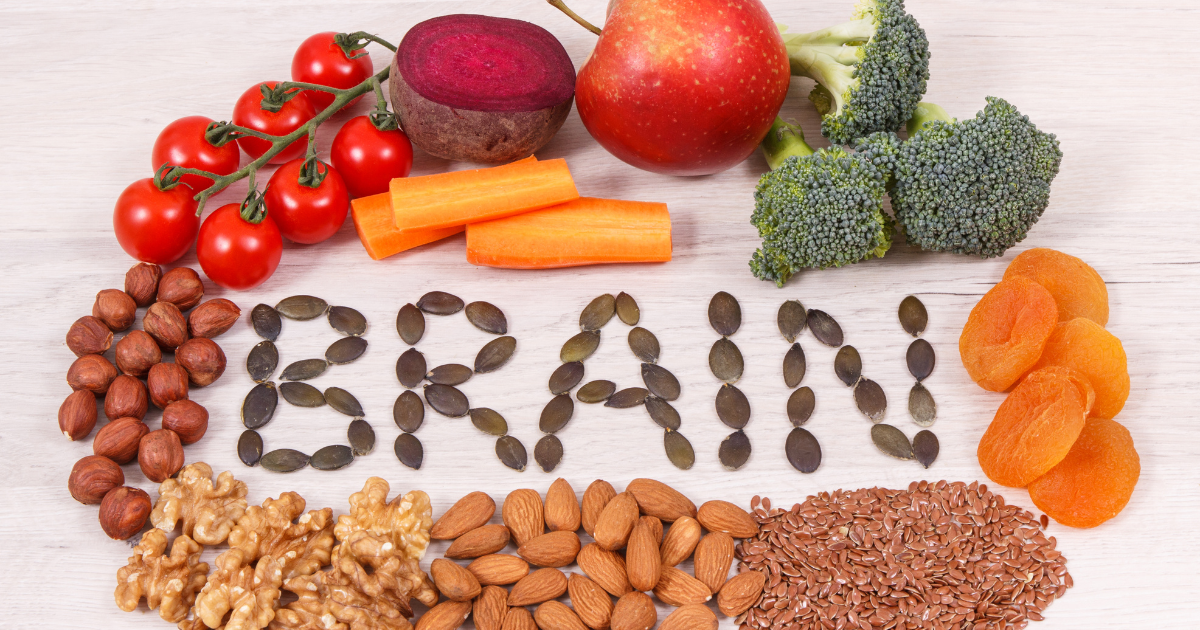Physical and mental fatigue are a quite common condition for anyone coping with a frenetic routine that is often lacking in a balanced diet and sufficient rest. In addition, some periods of the year can accentuate the feeling of fatigue: for example, low temperatures, high humidity, change of seasons and prolonged heat.
These are some of the common symptoms that indicate physical and mental fatigue:
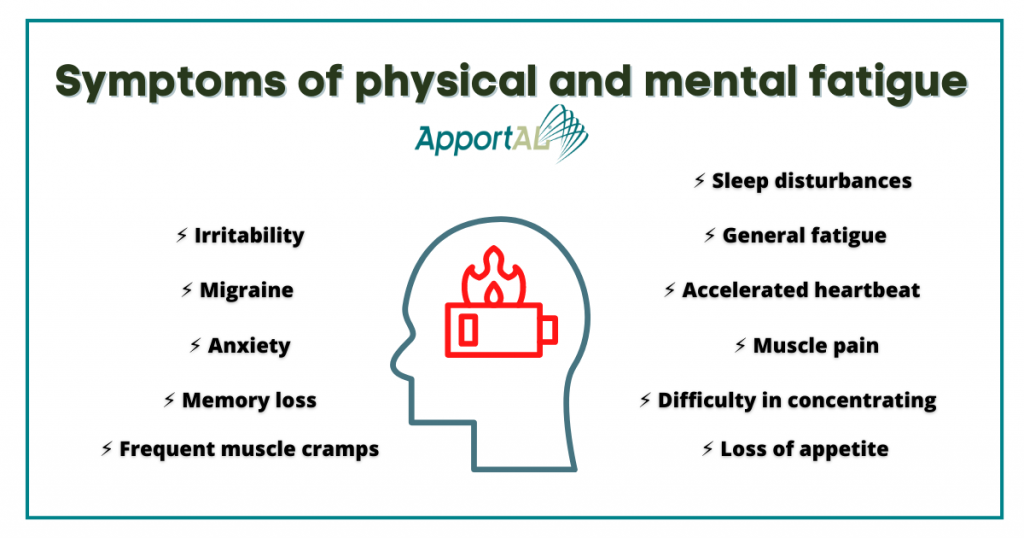
How to fight physical and mental fatigue
When one or more symptoms appear that indicate a considerable level of fatigue, it may be useful to take some precautions, for example paying particular attention to the diet, cutting down on caffeine, alcoholic beverages and fatty foods. Vice versa, some foods are rich in nutrients and vitamins that help to support the well-being of the nervous system.
Some foods that should never be missing are obviously green-leaf vegetables, which are rich in fibre and vitamin C. Others are less well-known, but can probably be a pleasant alternative to a coffee break mid-morning or after lunch: we’re talking about dark chocolate. Dark chocolate (minimum 70%) has beneficial properties that help the cardiovascular system and contains antioxidants that reduce the effects of oxidative stress.
Here are some foods that should never be lacking in a diet that aims to support brain health:
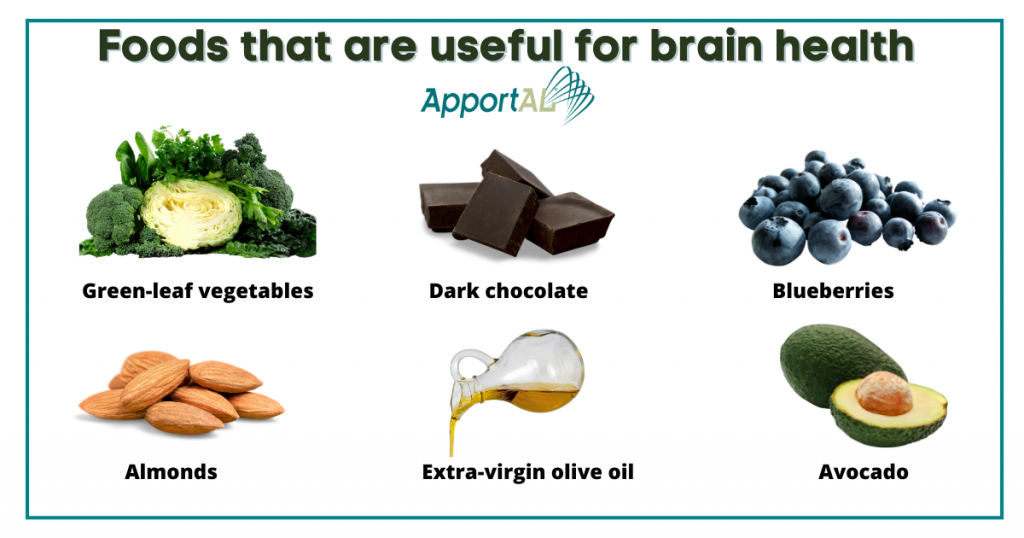
On the other hand, for physical well-being, of course food acts as “fuel” supplying strength and energy to the body. The best thing is to stick to the food pyramid on which the Mediterranean diet is based, complying with the recommended frequency and quantity of different types of food. Simply remember that no foods are harmful, and no dishes have slimming or fattening properties. Everything depends on a healthy balance of nutrients including proteins, legumes, cereals, dairy products, carbohydrates, fats, fruit and vegetables. Fruit and vegetables in particular must be found in every meal, helping the body to absorb the right amount of vitamins and mineral salts and to feel full.
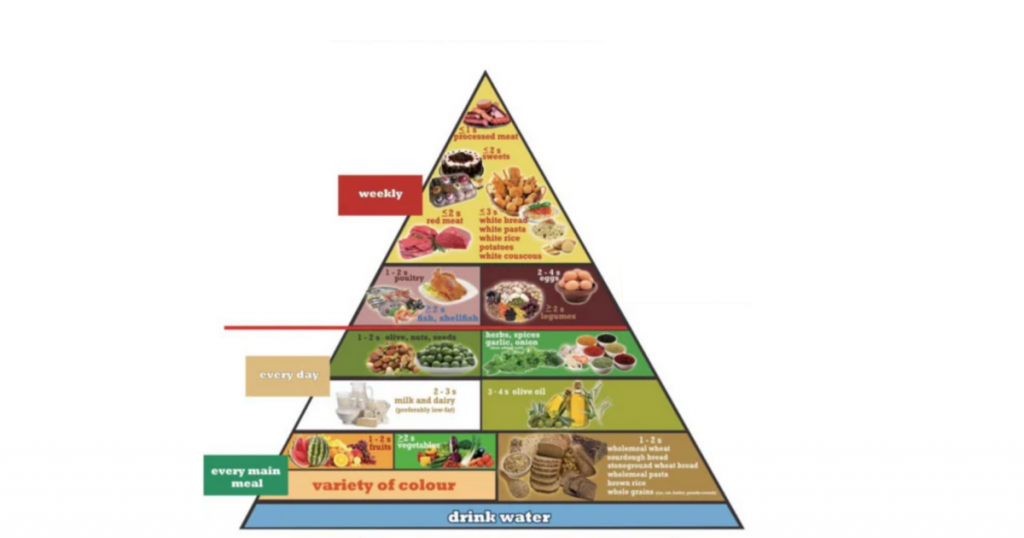
Vitamins and nutrients that stimulate physical and mental energy
In addition to a correct diet, some vitamins and nutrients must always be assured to stimulate physical and mental energy. Specifically these are:
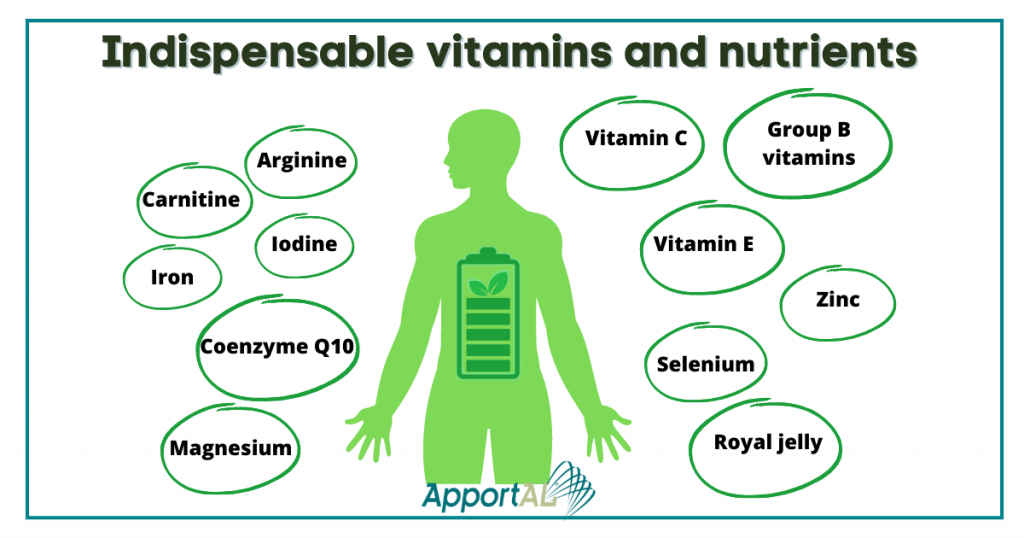
- Arginine, which plays an essential role in the correct functioning of the muscles, ensuring that energy is spent in a balanced manner.
- Carnitine plays a very important role in the production of both physical and mental energy, acting on the metabolism and improving brain functions.
- Coenzyme Q10 is essential for good physical efficiency as it contributes to coping with stress.
- Iron contributes to normal formation of haemoglobin and red blood cells, ensuring correct cell oxygenation.
- Magnesium contributes both to normal muscle activity and the functioning of the nervous system.
- Vitamin C contributes to the protection of the cells from oxidative stress and contributes to the normal functioning of the nervous system and immune system, also during and after intense physical activity.
- Group B vitamins give the body a good energy boost, reducing the sensation of fatigue.
- Vitamin E plays an important role in the production of energy as it supports muscle health and improves resistance to fatigue.
- Selenium acts as an antioxidant and supports the immune defences, slowing ageing processes.
La gamma di integratori ApportAL® contiene una formulazione completa per sostenere il benessere fisico e mentale in ogni situazione, a partire dai periodi di stress più acuto fino alle sessioni sportive più intense.
The range of ApportAL® supplements contains a complete formulation for supporting physical and mental well-being in any situation, from acute periods of stress to intense sports and training sessions.
ApportAL® and ApportAL® Vital contain active ingredients that maintain an excellent level of physical and mental energy in the body, relieving that typical feeling of tiredness we have in stressful periods.
Image sources:
1. https://www.mdpi.com/2072-6643/11/6/1296



